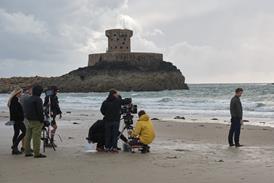Former chair highlights broadcaster’s interconnected relationship with production sector
Former Channel 4 chairman Lord Burns has warned that the broadcaster is “inseparable” from the indie sector amid concerns that a sell-off would have far-reaching ramifications for producers.
Appearing in front of the House of Lords Communications and Digital Committee yesterday (7 September), Burns said that he considered the impact on C4’s relationship with suppliers as the fundamental flaw in the government’s privatisation proposals.
“By design, C4 is separate from the privately-owned indies but they live in the same ecosystem. The idea that C4 would be better off in the private sector seems to miss the point that it sits side-by-side with an independent production sector,” he said.
“The two exist together and have worked off each other for a long period of time. C4 has been a very important part of our immensely successful production sector and I find it very surprising that it is felt that the PSB ecology would be helped by C4 turning itself into an organisation which made its own programmes.”
His comments preceded the appearance of Pact chief executive John McVay in front of the committee, who warned that a sale could cost the indie sector £3.7bn over 10 years.
Outgoing Ofcom chair Burns claimed that the impact would also be felt on-screen, with C4 becoming more risk-averse if it were sold into private hands.

“Because it invests all of its earnings into programming it has much more freedom to take risks and try out programmes that it isn’t sure will bring an audience,” he said.
“It will change behaviour once this is changed to a position where [its owners] must begin to worry about loss-making activities. The long history of the commercial broadcasters is to chisel away at those things that are loss-making.”
Burns added that he does not consider any of the government’s concerns regarding the sustainability of C4 to affect it more than any of the other PSBs.
Appearing alongside Burns, former Channel 5 and Thames exec David Elstein was scathing about the way in which C4 has reduced its arts, education and children’s output, primarily as a result of parliament’s decision to water these commitments down in 2003.
He considers a sale an opportunity for the government to oblige the new owner to operate the broadcaster under a stricter set of requirements.
“In the contract with a private owner I would like to see a much tighter definition of what [government] wants from C4 that it is legally bound to deliver,” he said.
Potential obligations could include ringfencing the news budget and guaranteeing a certain level of spend in the nations and regions as well as with small indies.


































2 Readers' comments